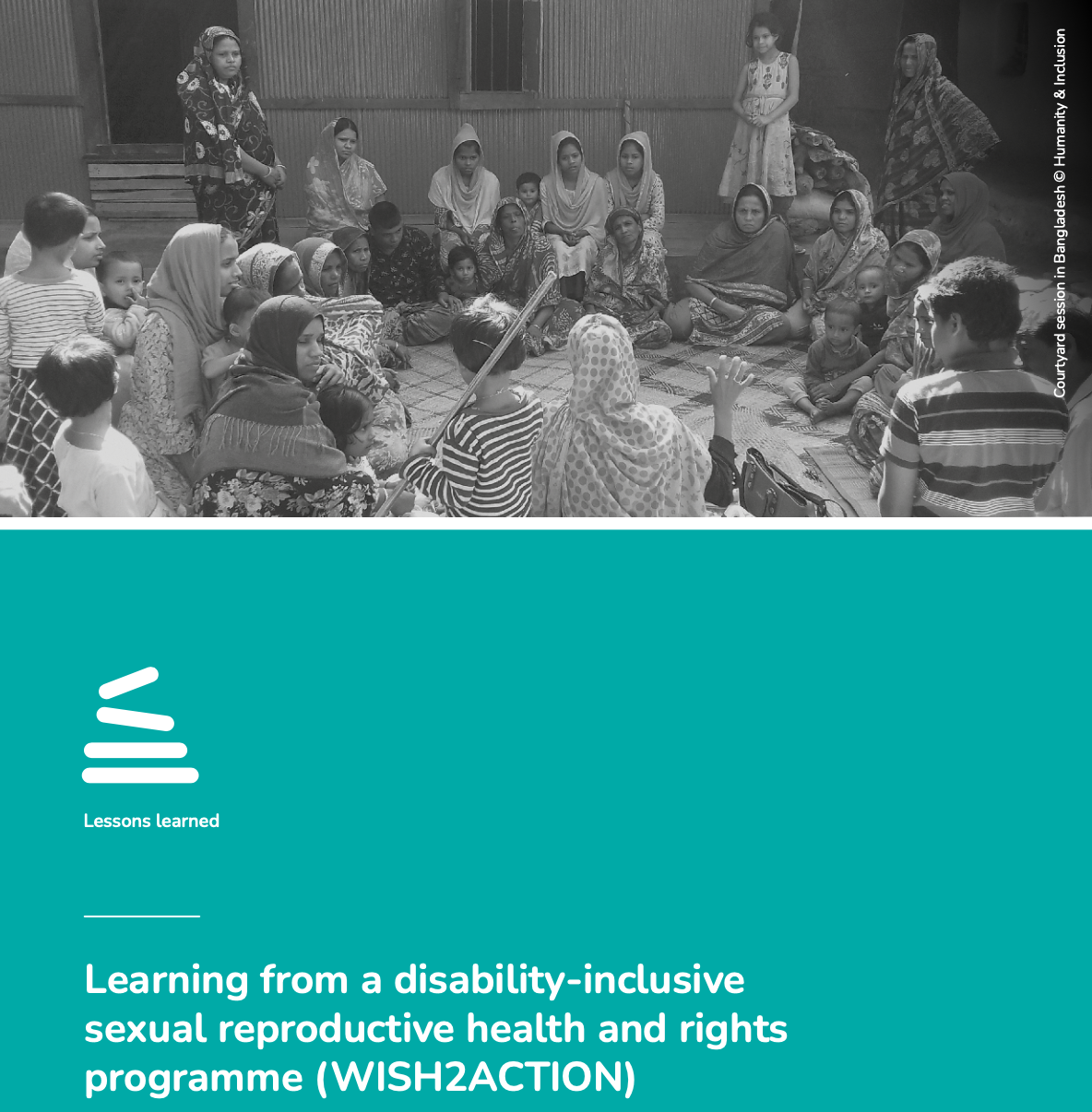Learning from a disability-inclusive SRHR programme (WISH2ACTION)
Executive Summary
This is a compilation of good practices and lessons learnt in disability-inclusive sexual and reproductive health and rights (SRHR) based on experience from the implementation of the WISH2ACTION (Women’s Integrated Sexual Health [Lot 2] Access, Choice, Together, Innovation and Ownership, Now) programme.
Firstly, the compilation introduces disability-inclusive SRHR which is critical to address the double discrimination faced by women and girls with disabilities, achieve universal human rights and contribute to the global commitment to leave no one behind. It introduces the WISH2ACTION programme as a comprehensive and integrated approach to deliver equitable access to sexual and reproductive health and rights (SRHR) for under-served women and girls and marginalised populations in low- and middle-income countries.
The methodology explains the approach used to create this compilation, from reviewing existing learning documents, to undertaking stakeholder interviews, to identifying themes and consolidating good practices and lessons learnt.
The main component of this document is sharing 30 good practices and lessons learnt across nine themes: inclusive culture, quality of care, coordination, data collection and management, referral networks, service integration, social and behavioural change communications (SBCC), partnerships and collaboration and policy and advocacy. Each theme includes case studies from different contexts.
The good practices (23) synthesise examples from six countries that can inform future work in disability-inclusive sexual and reproductive health (SRH). The lessons learnt (7) highlight challenges experienced during implementation and reflect on how these could be addressed in future. A summary of the key points per theme is below:
Inclusive culture: This covers a range of good practices that helped stakeholders build awareness, knowledge, and skills around disability inclusion. It emphasises that inclusive practices are founded in rights-based and social approaches to disability. It discusses awareness building on available SRHR services and shares effective training approaches such as multi-stakeholder events and targeting cross-sector stakeholders to build a disability-inclusive society.
Quality of care: This discusses improving the quality of SRH care for persons with disabilities and the role played by healthcare facilities (HCFs) and service providers. Good practices include undertaking structured assessments of HCFs, creating joint action plans for improvement, training service providers and community healthcare workers and building capacity in sign language interpretation.
Coordination: This focuses on how improved coordination between actors can contribute to more disability-inclusive SRH services. It highlights the important role of including organisations of persons with disabilities (OPDs) in coordination to ensure long term, sustainable and inclusive SRHR services. Key good practices relate to the inclusion of OPD members in local and district health committees and in emergency response committees during Covid-19. This section also notes the importance of considering the SRHR needs of persons with disabilities in humanitarian settings.
Data collection and management: This discusses the importance of collecting disability disaggregated data in health and SRHR using the Washington Group Short Set of Questions (WG-SS) and how this data can improve programming and services. Key learnings relate to building capacity on the application and use of WG-SS through providing tailored training and guidance. This section also reflects on the challenges of embedding the WG-SS into national health information management systems for widespread uptake.
Read the full report here.
